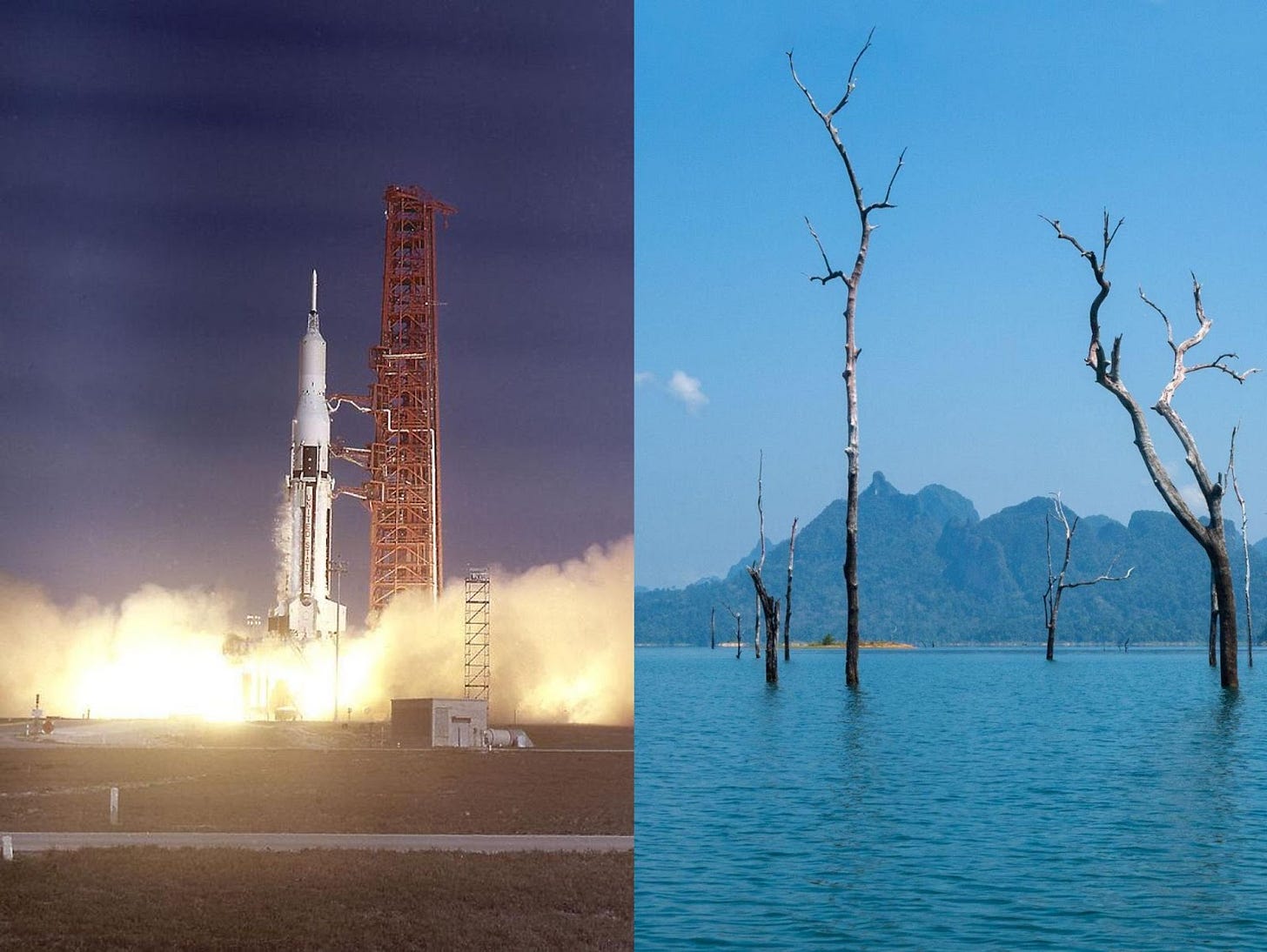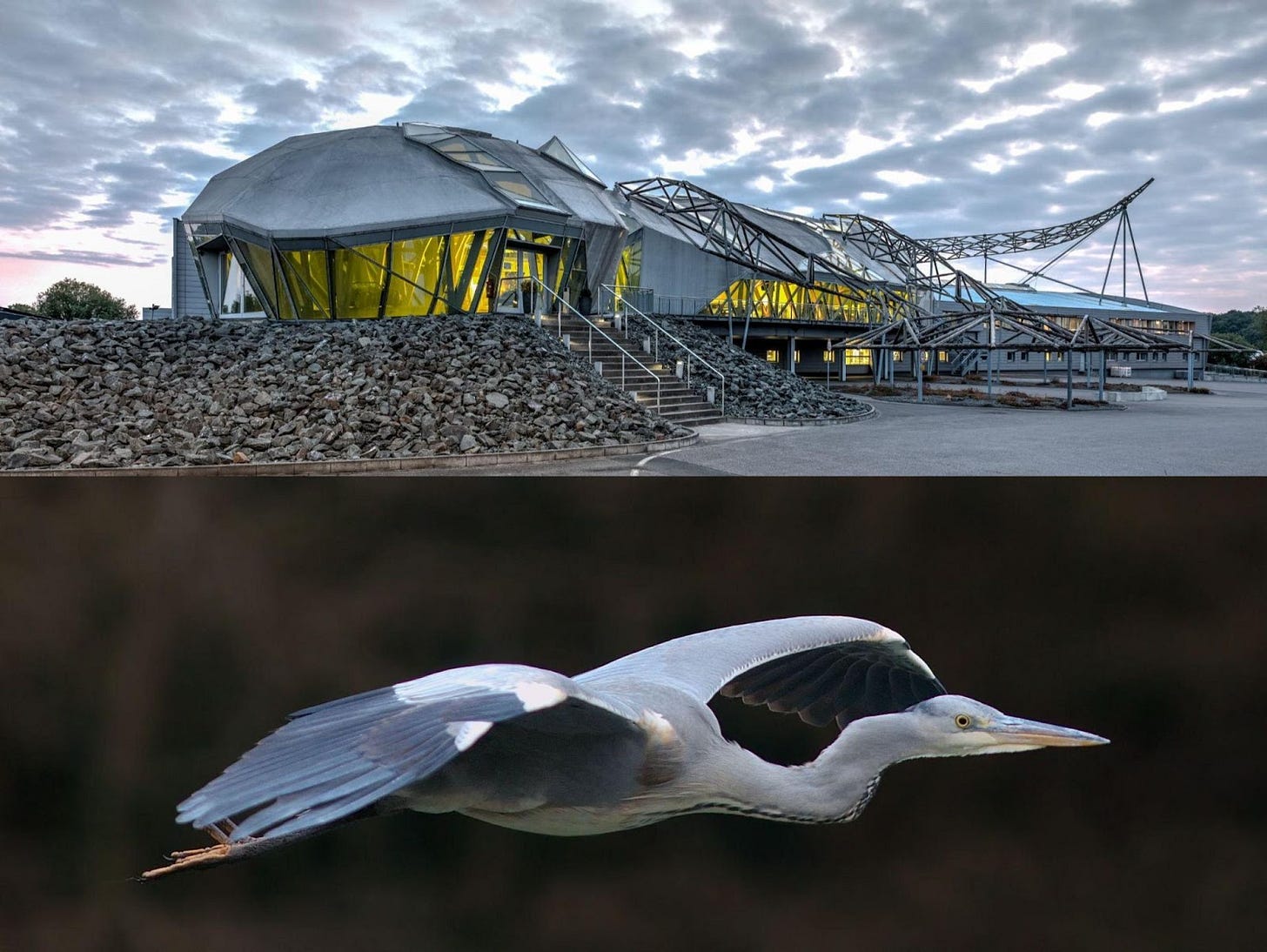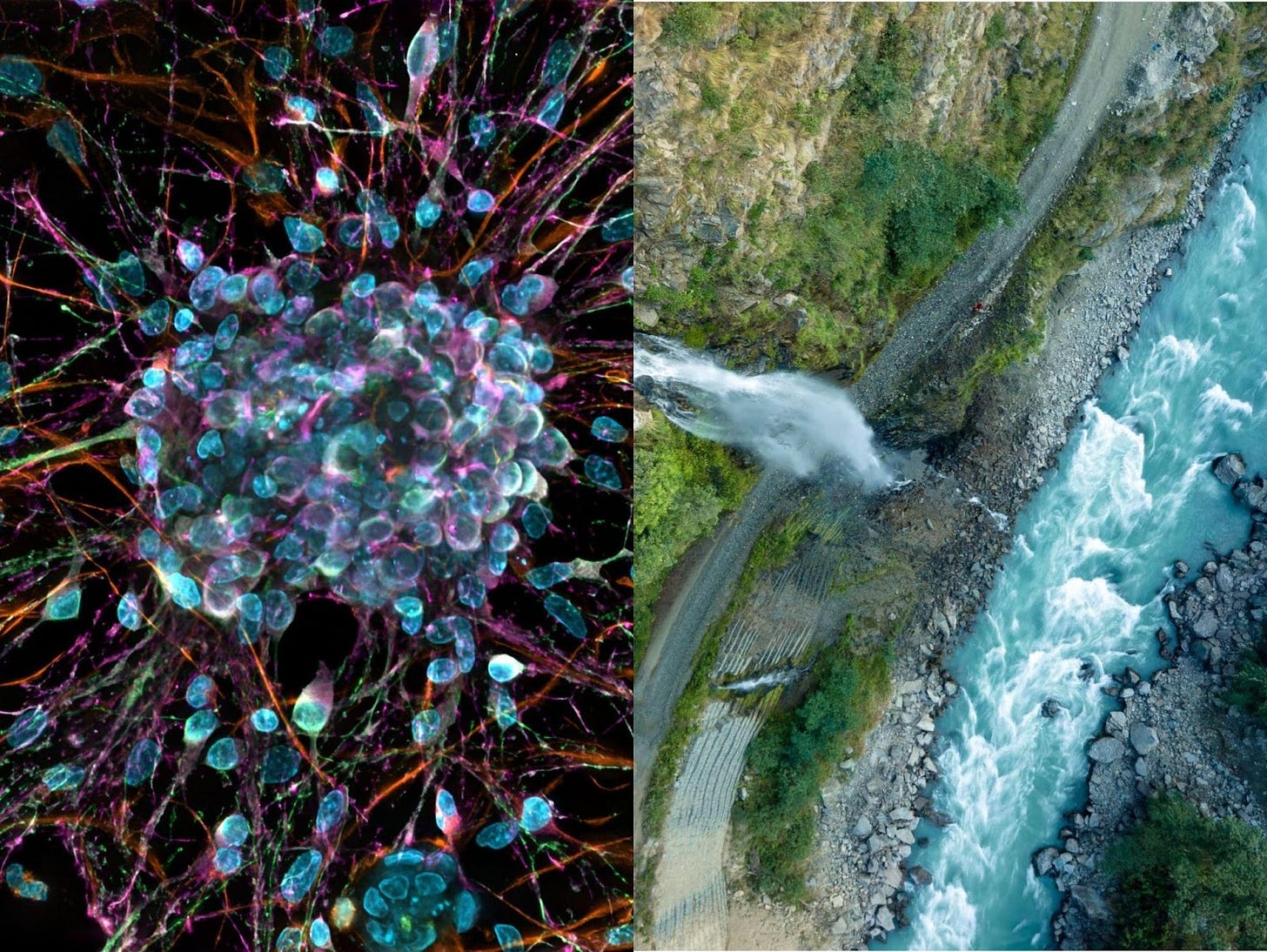Inside the UK FRO Founder Residency with ARIA
a big step forward in how we source and incubate new FRO projects
At Convergent, we match founders, funders, and ideas to help tackle the critical bottlenecks slowing down scientific and technological progress. We do this through a new type of scientific institution - the focused research organization, or FRO - a non-profit startup that we help design, launch, and operate. Each FRO is a time-bound, technically ambitious effort designed to unblock a whole domain of technical progress.
Sourcing these projects is an active, iterative process that blends scientific roadmapping, founder development, and funder alignment. We talk with hundreds of scientists and technologists each year, working with some of them to reshape initial concepts into “FRO-shaped” projects – tightly scoped efforts aimed at producing a product that fills a critical gap in the scientific process. We intend for those products to seed a whole ecosystem of users who can drive a scaled revolution in their field, and we focus on the type of engineering-heavy public goods creation that couldn’t otherwise happen in academia, industry, or startups.
Over the past four years, this process has launched almost a dozen FROs in domains from brain mapping to climate tech. Typically, we’ve started with a founder or team who has a defined target and a rough plan. Then we work side by side with them to sharpen the technical roadmap, stress-test their theory of change, assemble a founding team, and raise a runway of philanthropic funding.
A New Approach
This June, we kicked off our first-ever UK FRO Founder Residency as an Activation Partner for the United Kingdom’s Advanced Research and Invention Agency (ARIA). This founder residency programme is a deliberate expansion of our playbook, and builds on all of our past learnings.
Early conversations suggested to us that our two (very!) nascent organizations had a set of deeply overlapping interests in pushing science and technology forward. Years later, we were very happy when – after ARIA put out a call for Activation Partners and rigorously vetted a slew of organizations in the space - we were selected to work together, a project which has culminated in this open FRO call.
As Ilan Gur, ARIA’s CEO, said to Eric Gilliam recently on a podcast:
“I think probably the most important thing to accelerate progress in the research ecosystem is to increase the diversity of institutional types. Convergent is one of the few examples we have of a model that is taking root, that’s saying, “Here’s a new institutional type. Let’s figure out how to scale it!”
We wholeheartedly agree about the need for more institutional types! We’ve always had a rolling open call for abstract submissions for FROs from scientists around the world. But over the past year, thanks to ARIA’s interest in supporting FROs across their full range of opportunity spaces, we were able to run our first systematic cohort-based selection process.
Driven by ARIA’s interest in supporting new and experimental programmes (not “come to us and do more of what you’ve always done”, but “come and run an experiment with us based on what you’ve learnt so far!”), we called for entrepreneurial scientists, engineers, and builders eager to tackle FRO-shaped challenges in the UK. Selected teams would participate in a 6-month bootcamp as a cohort, refining and developing their FRO concepts. They would receive funding and travel expenses to cover events like roadmapping workshops, and partake in weekly programming to develop their projects.
After our public presentations sharing the open call - on webinars and at partner institutions - over 90 proposals came in over the stretch of a few weeks this spring, complete with technical concepts, organizational plans, and sketches of how each team wanted to execute their potentially groundbreaking idea. We were pleasantly surprised by the quality of the ideas and the talent, as the applicant pool really seemed to understand the scope and scale of project we were looking for!
We put together a team of expert readers to assess the applications together with the relevant ARIA technologists, taking those 90 or so applications down to a set of 20, then 10, then 5 finalist teams via iterations on concept notes, virtual pitches, and an in-person finalist day in London in June.
After all was said and done, the teams we selected are working towards:
Democratising access and facilitating analysis of Earth-scale environmental data by providing open-source, AI-powered software infrastructure and data-as-AI models that eliminate current fragmentation and complexity bottlenecks
Saving coral reefs from climate change by engineering heat-resistant symbiotic algae using advanced live imaging technologies for screening.
Providing trustworthy assurance for AI by building verifiable hardware-enabled governance systems.
Revolutionizing ecological monitoring and forecasting by integrating ground-truth data collection with Earth observation
Unlocking understanding of brain connectivity changes over time in diseases by building a high-throughput in vivo platform for tracking synaptic connections
The Residency
Fresh off their selection gauntlet, our five teams kicked off their residencies, which they’ve been deeply engaging with this summer. As they work on topics ranging from neuroscience to coral reef restoration, they’re developing their ideas through weekly programming that will culminate with a live UK FRO Residency Symposium in London this December 9th (please contact Corey Ruzicano if you are a funder or ecosystem builder interested in attending).
Why structure it as a residency?
Because turning a bold technical idea into a fundable, time-boxed, public-goods organization requires different skills than succeeding in academia or with a conventional startup. FRO founders must simultaneously do a number of difficult things: crystallize a vision for a tractable, gap-filling product; recruit and organize a mission-driven team; and align an early ecosystem of users and funders who will transform that product into scaled impact. That's too much for a single lab or PI working in isolation. The residency provides a crucible that is both helpful and purposefully intense by bringing teams together under structured conditions, with expert coaching on hand, so that they can pressure-test ideas at startup speed without sacrificing scientific rigor.
We see this first FRO Founder Residency in the UK as a really exciting new modality for how we can source and incubate FROs. It extends our playbook using lessons learned from the past four years of launches (which we’ve written more about and will be sharing with you, very soon!) When we reviewed these learnings, we found that our most successful teams coupled thorough roadmaps with early adopter engagement, saw operations as a primary design problem in and of itself (execution, after all, is everything), and shared their theory of change openly with diverse stakeholders, iterating early and often. These insights inflected both the structure and tempo of the residency we designed.
As the leaders of one team put it:
Participating in the residency with the guidance of Convergent Research has challenged us to maintain an ambitious vision while staying disciplined about both our technical roadmap and our plans to build a truly ”FRO-shaped” organization. This balance has been both demanding and deeply rewarding, ultimately sharpening our thinking considerably. With the support of both ARIA and Convergent Research, we have expanded our network of experts for brainstorming and feedback, encouraging growth at a rate that would not be otherwise possible.
So, what does that look like week to week? We’ve structured a curriculum that evolves over time, blending a diverse programming slate (expert-led sessions, one-on-one coaching, cohort “lab meetings,” and focused sprints) that’s designed to take founding teams from an idea at the start of the residency, all the way to an externally-presentable FRO proposal by December.
That compressed evolution is something we put together intentionally, and it comes in three parts. Teams first work to translate their inspirations and raw ideas into detailed roadmaps complete with milestones, explicit technical risks, and user maps. Then, for the second part, they shift from what to how and focus on the questions involved in building initial organizations, assembling recruitment plans, and putting together budgets that correspond to the needs of their roadmaps. Finally, the teams move into focusing on readiness for fundraising, putting together all the collateral they’ll need for live pitches (like the above-mentioned event on December 9th) and follow-up conversations.
We’ve found that the cohort dynamic is an integral part of the residency - residents share their experiences, pool together resources as needs and asks come up, and build on one another’s momentum.
Our delivery team for the residency includes Convergent members who've helped launch numerous FROs across biology, astronomy, and beyond, alongside external experts (FRO and startup founders, venture investors) who provide real-world examples. And, by design, our programming is focused on not only the development of the technical roadmaps, but also the concrete leadership and operational skills needed to launch a FRO, so that teams are prepared to leap from concept to fully funded organization.
Learnings and Unlearnings
One of the most interesting parts of developing this residency has been reflecting on what our FRO founders learn and unlearn as they launch and run a FRO, and observing a similar process in the resident teams. A critical part of the start of any Convergent FRO is how teams - coming from university labs or other settings - adjust to the operational norms and tempos that we set to help them succeed.
The key learnings gravitate around things like:
Starting from bottlenecks, not “topics”: When scoping a FRO idea, successful attempts are the ones that take aim at catalytic nodes on the tech tree, where founders can build up conviction that unblocking one capability has great potential to unlock many downstream wins.
Defining a product and its users from day one: Strong FRO concepts clearly articulate the product that will be built based on milestones achieved from the technical roadmap, the first adopters that can get tangible benefit from that product, and the process by which those users can develop an ecosystem.
Moving from vision to execution: Ideas can be hard-won, but execution is everything. You need to spend attention and energy on developing mid-level technical plans, milestone ladders, and plans to get early adopter engagement to create a tractable path from a “big if true” concept to a tractable product build that’s motivating for funders
The critical pillars of organizational excellence: Hiring, budgets, and governance decisions are all early considerations that have huge leverage in org design. Founders that think carefully about their networks and understand how bringing in industry-grade and other critical talent early can accelerate the whole org’s speed from its earliest days
The importance of milestones as a tool: This is a point that comes up time and again when the team at Convergent thinks about how FROs grow. Using different kinds of milestones (high level impact targets, intermediate checkpoints, and go/ no-gos) to structure a roadmap allows you to to keep ambition high while providing directionality and alignment, both internal and external
Defining an “impact exit” early: Well-defined ideas for how a FRO can eventually transition (whether it’s to a foundation, open source releases, spinning out startups, etc.) is a critical site for attention from the very beginning
And the critical unlearnings we often see are around shifting from:
Academic → startup speed: We’ve noticed that bias to action, and thinking in sprints rather than long academic cycles is incredibly important. Teams learn to plan out decisive experiments that can quickly build agreement about how to move forward. We encourage them to make reversible calls quickly, and run compatible processes in parallel whenever possible
Perfection before shipping → ship to learn: The most efficient founders use fast iteration cycles with external input to learn and improve.
Networking within your comfort zone → world class reach: Founders need to reach beyond familiar circles to test their hypotheses, recruit advisors and hires, and build real ecosystem momentum
Budgeting for austerity → investing for escape velocity: FROs exist to tackle substantial, moonshot problems. Being overly conservative with budgets can starve momentum, especially given the time-bounds and run-rates of most FROs. Early investments in critical hires and tooling are essential for lift-off, and waiting too long to make critical decisions wastes fuel that could be used to get there.
Our residents discovered that they could effectively execute a high-impact workshop in just eight to twelve weeks. They've also moved from doing outreach within familiar scientific circles to enthusiastically seeking connections across a truly diverse range of sectors and stakeholders. We think both of these (learning to move fast, and unlearning some previously-held barriers to reaching out) reflect a meaningful adjustment from the teams to the cadence we work to cultivate at Convergent.
We’ve also enjoyed seeing the spontaneous emergence of camaraderie within the residency cohort. Even though each team is working on highly specialized technical projects, they've grown into a culture of mutual encouragement and collective problem-solving. Running a FRO and encountering the problems of doing something hard and new can feel burdensome and demoralizing, and just as our current set of FRO CEOs find support in reaching out to one another, we’ve found that residents in lab meetings regularly swap insights, offer support, and celebrate each other's victories.
Many of us on the Convergent team, especially those of us who have been around the block in incubator and fellowship environments, recognize the same spark that animated the communities we remember fondly looking back. We’re hopeful that - even if the residents in our program don’t end up founding FROs - the skills and relationships they’ve gained will lead to better outcomes across their scientific, technological, and entrepreneurial pursuits! Having big dreams and pursuing them isn’t easy, but it’s meaningful and worthwhile - and providing the space to realize what those dreams are for the wonderful group of people who have come together for this residency is something we’re very grateful to be part of.
The Path Ahead
By the end of the year, the teams that make it through the program will present and field questions on stage in London with a fully fledged proposal for a multi-year, high-impact scientific sprint.
We’ll be sharing their progress in the months ahead, and we invite anyone curious to join us on Oct 9, 2025 at a Convergent UK Launch Party co-hosted with Venture Cafe London and ARIA, which will feature presentations from us and some of our resident teams, and a chance for all of us to connect with our readers and community.
ARIA’s mandate is “high‑risk, high‑reward” and we’re very excited to see how our residents’ proposed FROs ultimately measure up to our rubric and the expectations of the ARIA Programme Directors this December. From this cohort, we aim to launch 1 - 2 FROs in early 2026 with anchor funding from ARIA.
As one of them (Jacques Carolan, founding Programme Director for Precision Neurotechnologies) recently put it:
Convergent Research’s FRO programme is expanding the ‘art of the possible’ - enabling a new generation of scientists to dream bigger. The importance of bringing this ambition and vision to the UK through the residency programme cannot be overstated, and I am so excited to see what the residents come up with.
This residency is a joint experiment: can an agency with such ambitious scientific goals make use of the FRO model to bridge relevant capability gaps in the opportunity spaces they’ve targeted? We were very excited to see Bind launch as a FRO in the UK. We can’t wait to apply our learnings from our US FROs to helping the next UK FROs take flight.
Enormous thanks to Kristin Ellis, Avery Holland, Corey Ruzicano, and the whole team supporting the residency, and - of course - to our wonderful partners across the ARIA team, and our brave & enterprising cohort of residents!











Very interesting! Really makes me reconsider whether I should have applied. I wonder if there will be other cohorts, possibly in other countries.